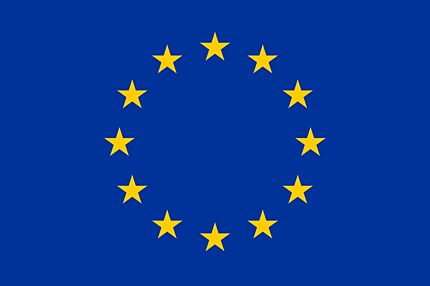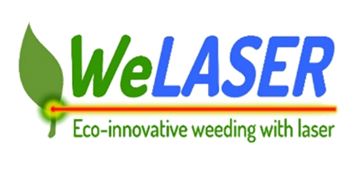WeLASER – Sustainable weed management in agriculture with laser-based autonomous tools
A growing global population demands increasing food production, which requires increasing use of pesticides and fertilizers. About 130 million tons of herbicides per year are used in Europe alone that persist in the environment, destroy non-target plants and beneficial insects for the soil and produce health effects in animals and humans –cancer, birth defects and endocrine disruption. Moreover, existing herbicides become more and more ineffective due to the evolution and spread of herbicide-resistant weeds. Substitution of herbicides by mechanical automatic systems is under study, but mechanical solutions contribute to deteriorate the soil properties, harm beneficial soil organisms and provide poor results for in-row weeding.
WeLASER solution focuses on non-chemical weed management based on applying lethal doses of energy on the weed meristems using a high-power laser source. An AI-vision system discriminates crops from weeds and detects the position of the weed meristems to point the laser on them using a laser scanner. An autonomous vehicle carries these systems all over the field. A smart controller coordinates these systems and uses IoT and cloud computing techniques to manage agricultural knowledge. This technology will provide a clean solution to the weeding problem and will help to decrease significantly the chemicals on the environment.
The required technologies for building this system and the number of actors needed to push it close to market demands the participation of ten experienced groups not easily found at the national level. Moreover, the cost of this high-technological equipment exceeds the funding levels of national organizations and claims the collaboration of large governmental institutions. Thus, with the EC help, WeLASER will put to work a large group of actors and stakeholders to advance in achieving the demanded productivity in agriculture while making the environment more sustainable and enhancing health to animals and humans.
The project is realised by consortium:
- Agencia Estatal Consejo Superior Deinvestigaciones Cientificas, Spain, project leader
- Futonics Laser GmbH, Germany
- LZH Laserzentrum Hannover EV, Germany
- Kobenhavns Universitet, Denmark
- Agreenculture, France
- Coordinadora de Organizaciones Deagricultores y Ganaderos Iniciativarural del Estado Espanol, Spain
- Alma Mater Studiorum - Universita di Bologna, Italy
- Instytut Ekologii Terenów Uprzemysłowionych, Poland
- Universiteit Gent, Belgium
- Van Den Borne Projecten BV, Netherlands
Project duration – 1 October 2020 - 30 September 2023
Total project cost: € 5 470 660
Grant agreement ID: 101000256
Coordinator at IETU – Dr Janusz Krupanek, email:
More information is available on the project webpage: www.welaser-project.eu
Twitter - https://twitter.com/welaserproject
This project has received funding under the European Union’s Horizon 2020 research and innovation programme










